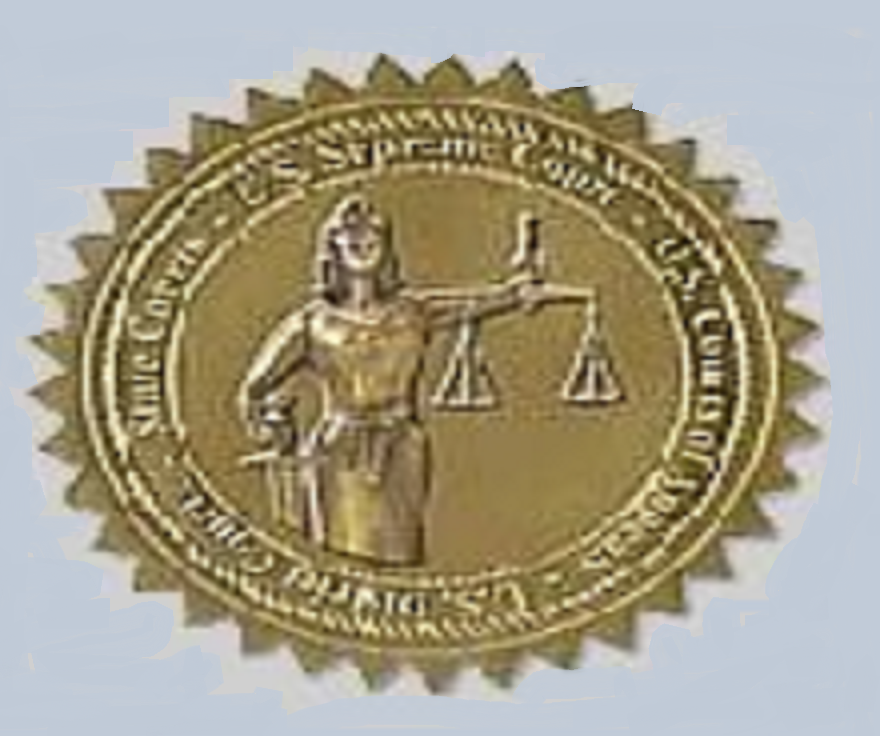Where are courts heading? Three things are converging that are likely to cause seismic shifts in the way they function. It’s a pity that those shape and run courts don’t seem to be aware.
“What's in a name? That which we call a rose by any other name would smell as sweet,” wrote Shakespeare in Romeo and Juliet. But there is plenty in a name, as J.K. Rowling discovered when her authorship of a pseudonymous mystery novel was revealed (sales shot up dramatically). Of course, her name is attached to a good reputation. Socrates said you should regard “your good name as the richest jewel you can possibly be possessed of – for credit is like fire; when once you have kindled it you may easily preserve it, but if you once extinguish it, you will find it an arduous task to rekindle it again.”
Your name also has legal importance and is the primary way that we identify parties to disputes and witnesses. Efforts to remove names or anonymize decisions of courts and tribunals have been met with resistance by adjudicators and the courts.
In a recent case from British Columbia, an arbitrator refused a request to anonymize a grievance decision. Following the usual practice and custom of labour arbitrators in Canada for more than five decades, he ruled that there were no special circumstances justifying anonymity.
Carole Lucock and Michael Yeo have summarized four broad categories of interests that the courts have seen as sufficient to overcome the strong presumption in favour of the use of the legal name (while noting that the legal principles are not always clearly decipherable and at times their application is inconsistent or overlapping):
ensuring that claims are advanced or crimes prosecuted;
furthering the administration of justice (such as protecting informers' identity);
protecting the innocent (mostly children and youth); and
protecting privacy interests.
The strong presumption in favour of open court proceedings (and therefore against anonymity of litigation participants) has recently been re-emphasized by the Supreme Court in A.B. v. Bragg Communications Inc., 2012 SCC 46: “…the critical importance of the open court principle and a free press has been tenaciously embedded in the jurisprudence and need not be further revisited here.”
However, the courts have recognized that “sufficiently compelling” interests can justify restrictions on open access and freedom of the press. In Attorney General of Nova Scotia v. MacIntyre, 1982 CanLII 14, Justice Dickson noted that there are cases in which the protection of social values must prevail over openness.
However, the courts have recognized that “sufficiently compelling” interests can justify restrictions on open access and freedom of the press. In Attorney General of Nova Scotia v. MacIntyre, 1982 CanLII 14, Justice Dickson noted that there are cases in which the protection of social values must prevail over openness.
In 1999, the B.C. Court of Appeal stated: “there is a public interest in not damaging professional reputations unnecessarily”: Dr. Q. v. College of Physicians, B.C., 1999 BCCA 53 (CanLII). However, the general trend has not been to protect professional reputations. In reviewing a number of cases concerning anonymity, the B.C. Supreme Court in R.S. v. C.O., 2010 BCSC 1872 (CanLII) concluded that in deciding whether to allow a litigant to proceed by way of pseudonym in a judicial review application the court is required to consider :
whether there is any extraordinarily sensitive personal information about the physician, the complainant or a third party;
whether the party affected objects to the disclosure; and
whether disclosure of the information would undermine the very purpose of the judicial review application.
The protection of privacy or, in light of recent events, the loss of privacy is one of the defining issues of this increasingly internet-driven world. The digitization of personal information and, more critically, the ability to search and match data has eliminated the “practical obscurity” of the pre-digital age.
Karen Eltis has written that “a search engine expedition can reap misleading but nevertheless persuasive data, an aggregate of unreliable yet compelling morsels…”.
The Assistant Privacy Commissioner of Canada told a Canadian Bar Association conference in 2011 that the Internet had “perverted” the open court principle. She shared an email she had received from an individual who was worried about personal information being published on the Internet:
I just received notice that my grievance will be referred to adjudication at the Public Service Labour Relations Board. I am concerned because the grievance involves matters of discrimination and medical information. I am considering abandoning my grievance because I don’t want my personal information posted on the internet. I am really torn because finally resolving this matter at adjudication is very important to me, however, I don’t want my job prospects to be threatened because of the internet publication of my name.
Ms. Bernier noted that the “indiscriminate” publication of decisions on the internet has created an “obstacle to justice”.
Karen Eltis has also argued that access to justice – one of the principal reasons for the open court principle – is at risk in the Internet era
Not surprisingly then, sacrificing participants' right to dignity and privacy in the justice process for the illusion of transparency, coupled with a significant loss of judicial control over how and what information is disseminated online, eventually risks fostering a disinclination to participate in the justice process. Thus, paradoxically, the very access to justice paperless records were meant to enhance, is undermined.
If privacy is more broadly understood as deriving from human dignity then it can be viewed as a facilitator rather than detractor of accessibility and comport with the court's various duties (to foster transparency and to protect litigants and control its documents). In other words, judges would presumably be more inclined to use their discretion to protect litigants' (and other participants') privacy if doing so would not be regarded as sacrificing openness or transparency but rather as a facilitator of access and enabler of court control over its records. Those litigants and witnesses who are confident that their personal information will not be indiscriminately exposed, surely have greater incentive to participate in the justice system than those dreading humiliation, intimidation, or retribution that not even the court itself can manage.
Privacy Commissioners have been largely unsuccessful in convincing tribunals to anonymize their decisions. There are some notable exceptions. In response to a recommendation of the federal Privacy Commissioner, the former Employment Insurance Tribunal anonymized its decisions. Other tribunals anonymize publicly-available decisions as well: the Workers' Safety and Insurance Appeal Tribunal and the Health Professions Review Board, both in Ontario, for example.
Christopher Berzins notes in an article for the Advocates Quarterly (2010) 37 Adv. Q. 1 that in the rush to make tribunal decisions accessible through digital access, tribunals may have lost sight of two important points:
•digital information persists forever and the possible impact on “individuals being able to rehabilitate themselves by putting their past behind them or being able to restore unfairly tarnished reputations”;
•the many ways that sensitive personal information may be used for “purposes entirely unrelated to the goal of administrative transparency”.
The harmful use of personal information (for such things as identity theft or cyber bullying) is clearly not a desired outcome of the open court principle. One of the things that decision makers should keep in mind is the unnecessary inclusion of irrelevant sensitive personal information in decisions and in publicly available documents. A few years ago I saw a presentation on privacy and tribunals where a panelist showed a publicly available decision that contained a Social Insurance Number. Other examples of irrelevant personal information that could be used inappropriately include addresses, telephone numbers, banking information, employee identification numbers, the names of family members or even work locations.
The issue of rehabilitation or restoring tarnished reputations runs squarely into the open court principle. The “unfairly tarnished” reputation is, hopefully, a matter addressed by an appeal or review body. The plain tarnished reputation is more difficult to address. The possibility of publicity can motivate the settlement of disputes. The publicity factor is a reality faced by many participants in the administrative justice system. Would the absence of the possibility of publicity lead to fewer settlements? One would need to conduct a controlled experiment to determine that question. For example, did the number of Employment Insurance appeals climb when decisions became anonymized (controlling for changes in unemployment rates)?
The common law has recognized the importance of reputation through defamation law. Recently, the Ontario Court of Appeal linked that jurisprudence to an examination of informational privacy in Jones v. Tsige, 2012 ONCA 32 (CanLII). This is the ground-breaking decision that confirmed a tort of “intrusion upon seclusion” and does not directly address the open court principle. However, it indicates an openness of the court to consider the impact of technology on the evolution of the common law.
The Court of Appeal focused on “informational privacy” which it defined as “the claim of individuals, groups, or institutions to determine for themselves when, how, and to what extent information about them is communicated to others”. The protection of informational privacy “is predicated on the assumption that all information about a person is in a fundamental way his own, for him to communicate or retain … as he sees fit”. The Court then referred to Hill v. Church of Scientology of Toronto, 1995 CanLII 59 (SCC), where Justice Cory noted that the right to privacy has been accorded constitutional protection and should be considered as a Charter value in the development of the common law tort of defamation: “reputation is intimately related to the right to privacy …” It also referred to the comment of Justice L’Heureux- Dubé in R. v. O’Connor, 1995 CanLII 51 (SCC) where she identified privacy as “an essential component of what it means to be ‘free’.”
The court continued: For over one hundred years, technological change has motivated the legal protection of the individual’s right to privacy. In modern times, the pace of technological change has accelerated exponentially. Legal scholars such as Peter Burns have written of “the pressing need to preserve ‘privacy’ which is being threatened by science and technology to the point of surrender”: “The Law and Privacy: the Canadian Experience” at p. 1. … The internet and digital technology have brought an enormous change in the way we communicate and in our capacity to capture, store and retrieve information. As the facts of this case indicate, routinely kept electronic data bases render our most personal financial information vulnerable. Sensitive information as to our health is similarly available, as are records of the books we have borrowed or bought, the movies we have rented or downloaded, where we have shopped, where we have travelled, and the nature of our communications by cell phone, e-mail or text message. It is within the capacity of the common law to evolve to respond to the problem posed by the routine collection and aggregation of highly personal information that is readily accessible in electronic form. Technological change poses a novel threat to a right of privacy that has been protected for hundreds of years by the common law under various guises and that, since 1982 and the Charter, has been recognized as a right that is integral to our social and political order.
If the common law can evolve to address technological change, is the open court principle also open to such change?
Christopher Berzins points out in a later article in the Advocates Quarterly (2011) 39 Adv. Q 1 the challenges in granting justice participants the “right to be forgotten”:
… While one can appreciate how a right to be forgotten might apply in a social networking context, the challenges become very different when the concept is imported into administrative adjudication with the suggestion that individuals should be able to request that adjudicative outcomes concerning them be removed from tribunal web sites.
Without legislative guidance, administrative tribunals are simply not in the position to make the difficult types of assessments that a right to be forgotten would entail. What tribunals can do, however, is proactively address the privacy concerns underpinning claims for a right to be forgotten by providing effective notice to affected parties, writing decisions through a privacy-sensitive lens, and developing web posting practices that attempt to minimise the opportunities for inappropriate use of personal information that needs to be included in tribunal decisions. At the very least, this will leave tribunals in a better position to respond when confronted with the issue, as inevitably will happen.
In an interview in Slaw in 2010, he elaborated on the “privacy-sensitive lens” by questioning the decision writing model used by most adjudicators: …tribunals will have to think more about how they write decisions – and that may be difficult for individuals who have written decisions the same way for a long time. I question how much personal detail really has to be some decisions. It’s going to take a more thoughtful approach to decision writing, rather than simply including everything, perhaps as a way of “judicial review-proofing” decisions.
The debate about the appropriate balance between the open access principle and privacy will continue. This is fundamentally a debate around access to justice from two different perspectives: the litigants' and society's. Does publicly identifying participants in the administrative justice system limit their access to justice? Does allowing anonymity in administrative justice proceedings result in a closed and opaque system for the public? Much more discussion needs to occur, as well as more evidence-based analysis, before we can answer these questions.

















